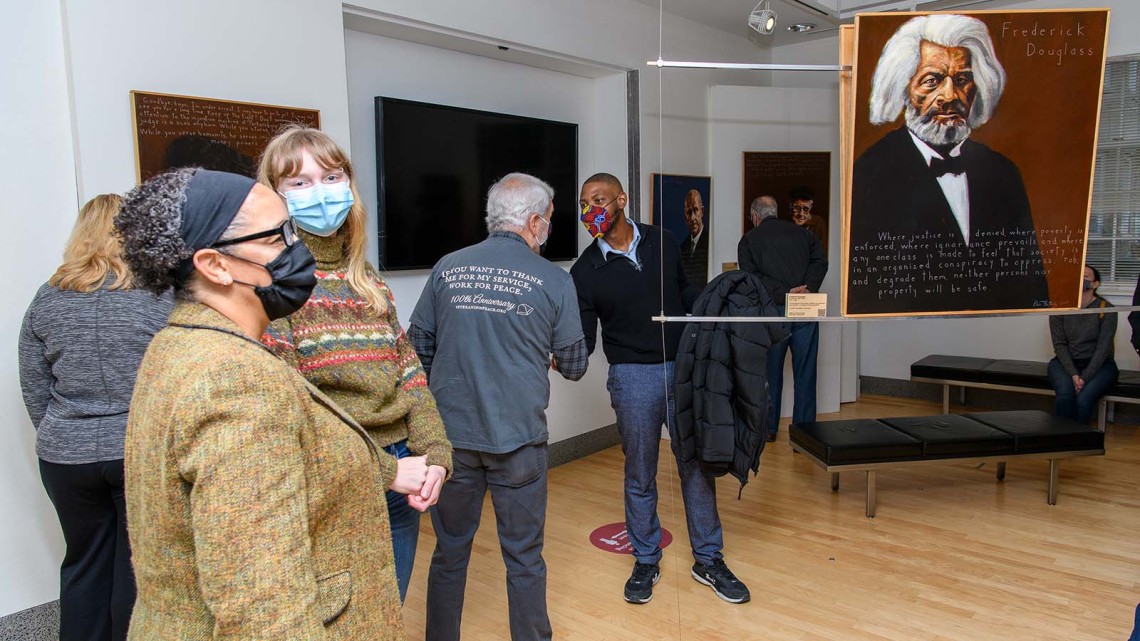
Eve De Rosa (left) and other visitors at the exhibition opening
News directly from Cornell's colleges and centers
“Americans Who Tell the Truth” highlights stories of courage
By Robin Roger
"Americans Who Tell the Truth," an exhibit that ran through the month of November in the MVR Gallery, included portraits and narratives highlighting citizens who courageously addressed issues of social, environmental and economic fairness. The exhibit included 17 of Robert Shetterly's portraits of well-known historical figures like Frederick Douglass, Mother Jones, Cesar Chavez, and John Lewis, as well as lesser-known individuals who spoke truth to power.
These individuals are the people we should consider our “forefathers” and “foremothers,” Shetterly said at the opening of the exhibit on Nov. 11. “They’re trying to teach us what it takes to live up to the ideals of this country,” he said. “That’s been the educational effort of this work. To teach that history and provide models for all of us, especially our young people, to understand what citizenship really means and how important it is if we’re going to have a successful democratic society.”
The issues and themes reflected in the paintings are still relevant today: freedom of speech, economic inequality, environmentalism, and social justice, to name a few.
Eve De Rosa, Dean of Faculty for Cornell University, Dean’s Fellow for Racial and Social Justice in the College of Human Ecology, and associate professor, led the effort to bring the exhibit to Cornell’s College of Human Ecology.
“Bravery is an action in response to or despite your emotions,” De Rosa reflected. “Despite fear and anxiety, you do the right thing, and you do what your values tell you to do. For that reason, I’m so excited to share this with our college community.”
As a dean’s fellow for racial and social justice, De Rosa was instrumental in creating the Human Ecology initiative, Pathways to Social Justice, a cross-college effort to hire a cohort of scholars to advance scholarship and sustained community engagement that addresses social justice. Each of the faculty members who are part of the cohort chose a portrait to represent their field of study, personal values and aspirations.
Jaleesa Reed, assistant research professor in the Department of Human Centered Design, chose Ella Baker, a civil rights organizer.
“Ella Baker valued all voices,” Reed said. “Her influence lives on because she directed her efforts towards the future by organizing and sustaining Black youth in the Civil Rights Movement.”
The exhibit was a collaboration with the Broome County Veterans for Peace and Broome County Peace Action.
There is also an interactive component online, where visitors can view the portraits and share their reflections.
Media Contact
Get Cornell news delivered right to your inbox.
Subscribe